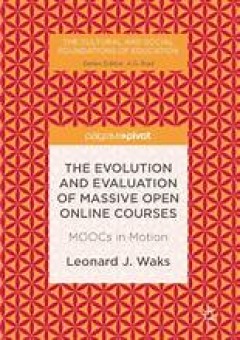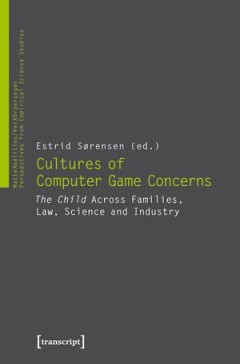Filter by

Russia's Turn to the East Domestic Policymaking and Regional Cooperation
Development studies; Russia; Far East; International affairs; Energy; Shanghai cooperation organization; Economic development; Security policy; Multilateral organizations; Diplomacy; Regionalism; Russian–European relations; Russia’s “pivot to the East”; Annexation of Crimea; Regional politics; Eurasia; Ukraine; Sanctions regime; Foreign policy
- Edition
- -
- ISBN/ISSN
- 9783319697901
- Collation
- -
- Series Title
- -
- Call Number
- -

Trust and Incidents The Dynamic of Interpersonal Trust between Patients and …
Taking an interdisciplinary approach to conceptualise interpersonal trust between patients and medical practitioners, Katja Beitat introduces a unique model to describe the dynamics of trust building and deterioration with particular relevance to incidents in health care. Empirical findings from studies in Australia and Germany, the two systems focused on in this book, broadly support and expan…
- Edition
- -
- ISBN/ISSN
- 978-3-658-09670-0
- Collation
- -
- Series Title
- -
- Call Number
- -

The Future Internet
Readers seeking to gain a handle on the internet's global expansion will find this book rich in scholarly foundations combined with cutting-edge discussion of emerging ICTs and services and the complex societal contexts in which they are embedded. To explore possibilities to the fullest extent, a sociotechnical systems approach is employed, focusing on the interplay of technical, social, cultur…
- Edition
- -
- ISBN/ISSN
- 978-3-319-22994-2
- Collation
- XIII, 232, 1 b/w illustrations, 6 illustrations in colour
- Series Title
- Public Administration and Information Technology
- Call Number
- -

The First Decade of Living with the Global Crisis
This volume sheds new light on economic developments in several countries of Southeast Europe. The European Union and especially the eurozone continue to experience rhythms of fiscal crisis, as can most clearly be seen in the debt crisis in the South Periphery. Despite the fact that several measures and decisions have been taken to deal with the crisis (banking union, liquidity support from the…
- Edition
- 1
- ISBN/ISSN
- 978-3-319-24267-5
- Collation
- XII, 192, 19 b/w illustrations, 6 illustrations in colour
- Series Title
- Contributions to Economics
- Call Number
- -

The Evolution of Sexuality
Attraction, mating, reproduction: it is a given that as a species, human beings are concerned with sex. And whether the study compares sexual behaviors of men and women or considers the proportions between nature and nurture, most roads lead back to our distant ancestors and/or our fellow animals. The Evolution of Sexuality collects stimulating new empirical findings and theoretical concepts…
- Edition
- 1
- ISBN/ISSN
- 978-3-319-09384-0
- Collation
- XX, 280, 7 b/w illustrations, 5 illustrations in colour
- Series Title
- Evolutionary Psychology
- Call Number
- -

The Evolution and Evaluation of Massive Open Online Courses
This book offers a re-assessment of the educational and occupational value of MOOCs based on developments since 2013. When MOOCs appeared--amidst great fanfare in 2012, leaders proclaimed an educational “revolution.” By 2013, however, dramatic failures, negative research findings, and sharp critiques ended the MOOC hype. This book examines both MOOCs and prior distance learning innovations,…
- Edition
- 1
- ISBN/ISSN
- 978-1-349-85204-8
- Collation
- XVII, 136
- Series Title
- The Cultural and Social Foundations of Education
- Call Number
- -

Transforming Teacher Quality in the Global South Using Capabilities and Caus…
A common story of teachers from the Global South portrays them as deficient, unreliable and unprofessional. However, this book uses an innovative Capability Approach/Critical Realist lens to reveal the causal links between teachers' constrained capabilities and their 'criticised' behaviours and offer nuanced, creative strategies for improvements.
- Edition
- -
- ISBN/ISSN
- 978-1-137-49545-7
- Collation
- -
- Series Title
- -
- Call Number
- -

The Educational Significance of Human and Non-Human Animal Interactions
The Educational Significance of Human and Non-Human Animal Interactions explores human animal/non-human animal interactions from different disciplinary perspectives, from education policy to philosophy of education and ecopedagogy. The authors refute the idea of anthropocentrism (the belief that human beings are the central or most significant species on the planet) through an ethical investiga…
- Edition
- 1
- ISBN/ISSN
- 978-1-137-50525-5
- Collation
- XIII, 234
- Series Title
- -
- Call Number
- -

Cultures of Computer Game Concerns : The Child Across Families, Law, Science …
The same computer games are played by youths all over the world, and worldwide games become matters of concern in relation to children: worries rise about addiction, violence, education, time, and economy. Yet, these concerns vary depending upon where they are situated: in families, legal contexts, industry or science. They also play out differently across countries and cultures. This situated …
- Edition
- -
- ISBN/ISSN
- 9783839439340, 9783837639346
- Collation
- -
- Series Title
- -
- Call Number
- 362 SOR c

Russia's Turn to the East Domestic Policymaking and Regional Cooperation
Development studies; Russia; Far East; International affairs; Energy; Shanghai cooperation organization; Economic development; Security policy; Multilateral organizations; Diplomacy; Regionalism; Russian–European relations; Russia’s “pivot to the East”; Annexation of Crimea; Regional politics; Eurasia; Ukraine; Sanctions regime; Foreign policy
- Edition
- -
- ISBN/ISSN
- 9783319697901
- Collation
- -
- Series Title
- -
- Call Number
- -
 Computer Science, Information & General Works
Computer Science, Information & General Works  Philosophy & Psychology
Philosophy & Psychology  Religion
Religion  Social Sciences
Social Sciences  Language
Language  Pure Science
Pure Science  Applied Sciences
Applied Sciences  Art & Recreation
Art & Recreation  Literature
Literature  History & Geography
History & Geography